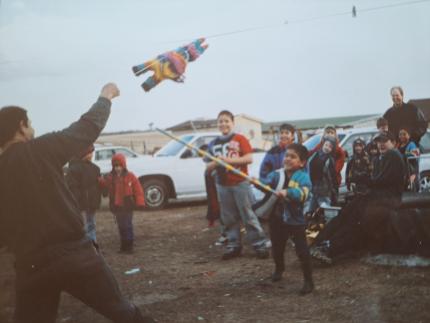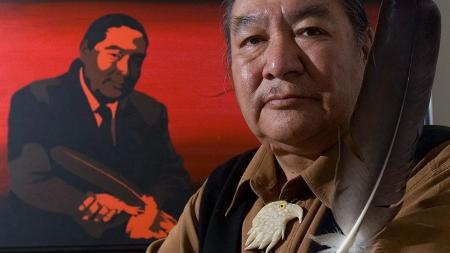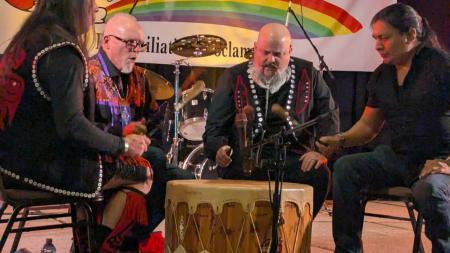Is Our Home Intercultural?

My parents loved parties. This is especially true since we lived on a 12-acre acreage in the middle of nowhere Alberta. Our home was in the middle of two counties and school districts; we literally belonged nowhere. Parties helped to combat the isolation and, as the saying goes, when you belong nowhere you can belong everywhere. My father invited our neighbours to belong with us: settlers to the colony whose origins trace to Ukraine, the U.K, and Norway; a father and son from Hungary; and the Hutterites, who might come if they finished their work early. We also invited an Indigenous family who often babysat my brother and I. My mother would invite her Filipino friends from the city. They would help my dad butcher the goats, sheep, rabbits, or chickens that would be featured on the party menu. There was always a whole pig to roast. Other family friends from the city, a Yugo-Filipino family (like our family) and a family from Chile, would also make the 1.5 hour trip to our home.
Finally our church, located in a hamlet 45 min east, would join us. In addition to settlers, the church supported a Chinese family who owned the local restaurant as well as another indigenous family. The Pastor, who immigrated from the Republic of the Congo, would pray a blessing over the gigantic amount of food.
To be intercultural is to be both diverse and interdependent on each other which, in a meaningful way, impacts and transforms the dominant culture
I remember the day there was a pinata for us kids to break. One by one the kids were blindfolded and spun around. They were given a broomstick and told to swing. A pale skinned boy with red hair swung and missed. A larger indigenous boy swung hard but also missed. My little brother took a few swings with little success. It was my turn. I swung with all my might and took the head right off. I suppose it helped that my dad was the one holding the string which controlled the pinata. I wanted to be a butcher just like him. The life blood of the pinata showered its sugary treats for the rest of the children.
In my work there is a big difference between multicultural and intercultural. To be multicultural is to be diverse but also independent of each other: each culture, for the most part, relies on themselves and they are able to find some degree of success in the dominant culture. To be intercultural is to be both diverse and interdependent on each other which, in a meaningful way, impacts and transforms the dominant culture.
This memory of mine is very intercultural, however, these interdependent relationships were not able to transform or even survive the dominant culture. My home experienced much discrimination without and within it was plagued with cultural misunderstandings that contributed to my parents separating. From the people who made up this party, three people of colour ended up in prison for their involvement in gang violence. At least one person experienced homelessness. Addiction traversed all peoples present at the party. Even the church, as time grew on, became less and less culturally and theologically diverse (speaking in tongues was a major point of division) until the intense internal conflict caused it to close down.
That intercultural heaven, that magnificent party will come and, in a mysterious way, it is already here.
It seems the best way to succeed in the dominant culture is to not depend on others who are different from you. It is to stick to your own, huddle together, and keep your head down.
For me this memory is not a picture of an intercultural home on earth. It is a picture of the messianic feast hosted by our Lord Christ in which all his children belong and are cherished.
Our hope is that Jesus took on human flesh. He allowed his body to be battered and at his death his blood showered on us embracing all peoples. As the risen Lord, he is preparing the best party for us.
That intercultural heaven, that magnificent party will come and, in a mysterious way, it is already here. All we can do is be thankful for and press into those moments when we are able to taste and see it here and now. The church of the Spirit of Jesus ought to be a place of belonging for all because, at its core, it does not belong to the dominant culture. As the saying goes, when you belong nowhere you can belong everywhere.
Oh Spirit of all peoples as we learn to depend on you, help us to depend on our increasingly diverse neighbours.
Photo provided by the author.




